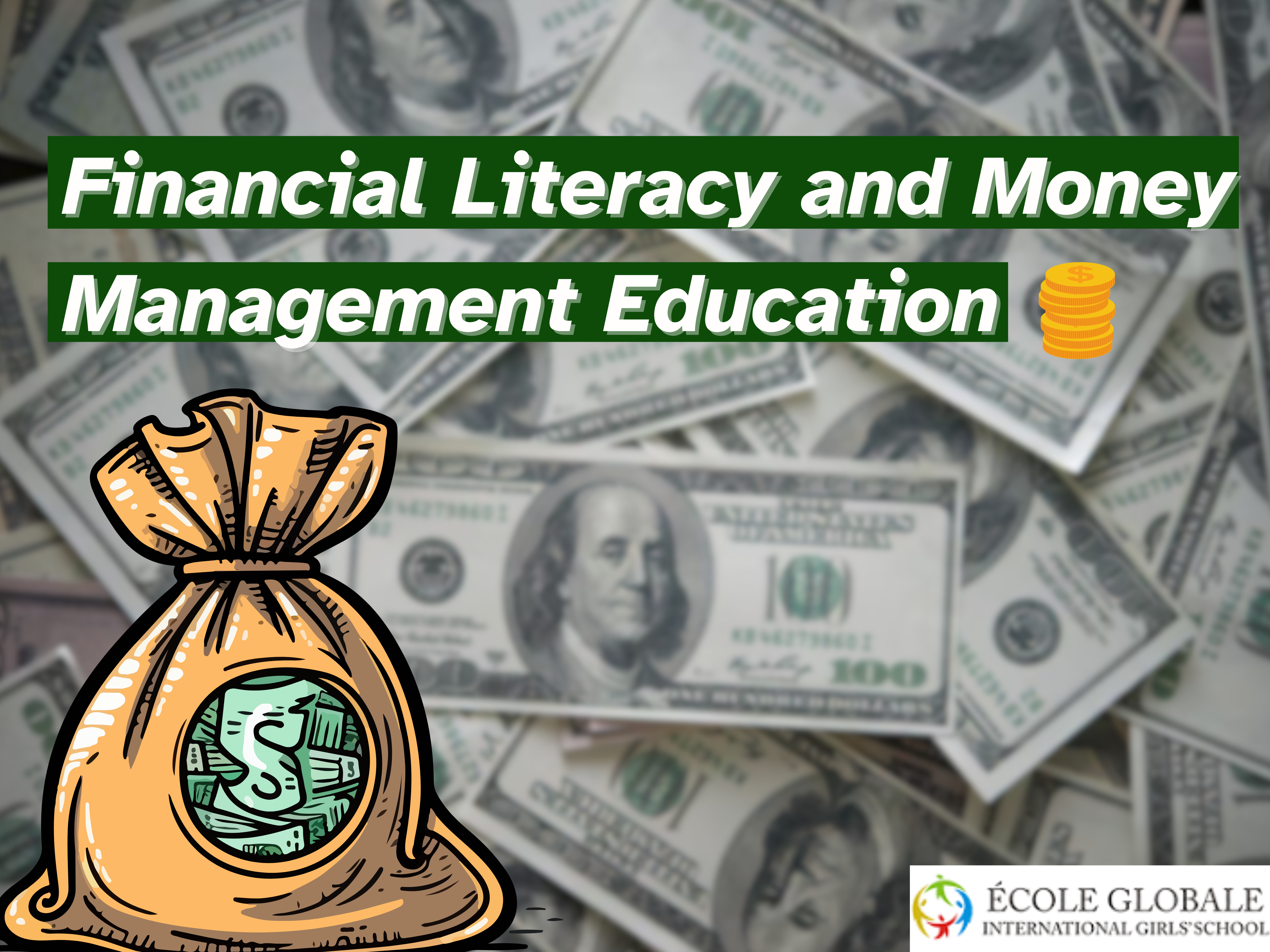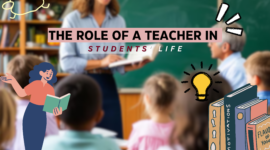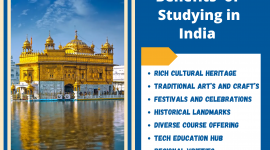In the contemporary world, financial literacy has become a critical skill for individuals to navigate through the complexities of personal finance and economic decision-making, especially in Schools in Dehradun.
As the financial landscape continues to evolve, equipping students with the knowledge and skills to money management effectively has gained paramount importance.
Boarding schools in Dehradun, known for their holistic approach to education, are increasingly incorporating financial literacy and money management into their curricula, preparing students not just for academic success, but also for responsible adulthood.
The Importance of Financial Literacy in Today’s World
Financial literacy encompasses a broad range of knowledge and skills, including budgeting, saving, investing, understanding credit, and financial planning.
In today’s economy, where financial products and services are more diverse and complex than ever, financial literacy is essential. It empowers individuals to make informed decisions, avoid debt traps, plan for the future, and achieve financial stability.
Dehradun: The Educational Hub
Dehradun, the capital city of Uttarakhand, has long been recognized as an educational hub, home to some of India’s most prestigious boarding schools, where money management is cultivated naturally alongside academic excellence.
The serene environment, coupled with a rich educational heritage, makes it an ideal location for holistic education. Schools in Dehradun have consistently focused on delivering well-rounded education, balancing academics, extracurricular activities, and life skills training.
Ecole Globale International Girls’ School: Pioneering Financial Literacy Education
Among the renowned girls boarding schools in Dehradun, Ecole Globale International Girls’ School stands out for its innovative approach to education.
Recognizing the importance of financial literacy, Ecole Globale has integrated money management education into its curriculum, ensuring that students gain practical knowledge and skills to handle their finances effectively.
Curriculum Integration of Financial Literacy

Ecole Globale’s approach to financial literacy is multi-faceted, encompassing theoretical knowledge, practical application, and experiential learning. The school has designed a comprehensive financial literacy program that spans various aspects of money management:
Budgeting and Saving
Students learn the fundamentals of budgeting, including how to track income and expenses, differentiate between needs and wants, and set financial goals. The importance of saving is emphasized, with lessons on creating emergency funds and saving for future expenses.
Understanding Credit and Debt
Understanding how credit works is crucial in today’s world. Ecole Globale educates students about different types of credit, how to use credit responsibly, and the implications of debt. Lessons cover interest rates, credit scores, and the potential pitfalls of credit misuse.
Investment Basics
Investing is a key component of wealth building. The school introduces students to basic investment concepts, including stocks, bonds, mutual funds, and the principles of risk and return, fostering their understanding of money management naturally. Students learn about the importance of long-term investment strategies and the power of compound interest.
Financial Planning and Goal Setting
Financial planning is an essential life skill. Ecole Globale teaches students how to set short-term and long-term financial goals, create comprehensive financial plans, and adjust these plans as circumstances change. Topics include retirement planning, education savings plans, and major purchases.
Practical Application and Experiential Learning

To ensure that students can apply theoretical knowledge in real-life situations, Ecole Globale incorporates practical exercises and experiential learning opportunities into the financial literacy program.
Simulated Financial Environments
Students participate in simulations that mimic real-world financial scenarios. These simulations involve managing a virtual budget, making investment decisions, and navigating financial challenges. Such exercises help students understand the consequences of their financial choices in a controlled environment.
Workshops and Guest Lectures
Ecole Globale invites financial experts, alumni, and industry professionals to conduct workshops and guest lectures. These sessions provide students with insights into the financial industry, current economic trends, and practical tips for managing personal finances.
Entrepreneurship Programs
Entrepreneurship is a significant aspect of financial literacy. Ecole Globale encourages students to develop entrepreneurial skills through business clubs and startup projects. Students learn about business planning, market research, financial forecasting, and the challenges of running a business.
Collaboration with Parents and the Community

Ecole Globale believes that financial education should extend beyond the classroom. The school collaborates with parents and the broader community to reinforce money management principles and foster financial literacy among its students.
Parent Workshops
Workshops for parents cover topics such as teaching financial responsibility at home, setting financial examples, and encouraging savings habits. These sessions aim to create a consistent money management education environment both at school and at home.
Community Outreach Programs
The school engages with the local community through outreach programs that promote financial literacy. These initiatives include financial education camps, awareness drives, and partnerships with local financial institutions.
Measuring the Impact of Financial Literacy and Money Management Education

To ensure the effectiveness of the financial literacy program, Ecole Globale employs various assessment tools and feedback mechanisms.
Pre- and Post-Program Assessments
Students undergo assessments before and after completing the financial literacy program to measure knowledge gains and identify areas for improvement. These assessments cover key financial concepts and practical skills.
Student Feedback and Reflection
RRegular feedback sessions allow students to reflect on their learning experiences and provide suggestions for enhancing the money management program. This feedback helps the school tailor the curriculum to better meet students’ needs.
Tracking Long-Term Outcomes
Ecole Globale tracks the long-term impact of financial literacy education on alumni. Surveys and follow-up studies assess how former students apply financial literacy skills in their adult lives, including their ability to manage finances, avoid debt, and achieve financial goals.
Challenges and Future Directions

Implementing a comprehensive financial literacy program in boarding schools in Dehradun is not without challenges. Some of the key challenges include:
Curriculum Overload
Integrating financial literacy into an already packed curriculum can be challenging. Schools need to find a balance between academic subjects and life skills education without overwhelming students.
Resource Constraints
Developing and sustaining high-quality financial literacy programs requires resources, including trained educators, up-to-date materials, and technology. Schools must secure adequate funding and support.
Cultural and Socioeconomic Diversity
Students come from diverse cultural and socioeconomic backgrounds, which can influence their financial attitudes and behaviors. Programs must be tailored to address these differences effectively.
Conclusion
Financial literacy and money management education are crucial components of a well-rounded education. Boarding schools in Dehradun, such as Ecole Globale International Girls’ School, are leading the way in integrating financial literacy into their curricula.
By equipping students with essential financial skills and knowledge, these schools are preparing the next generation for a financially responsible and successful future.
As financial landscapes continue to evolve, the commitment to financial literacy education in Dehradun’s boarding schools will play a pivotal role in shaping informed and empowered individuals.









